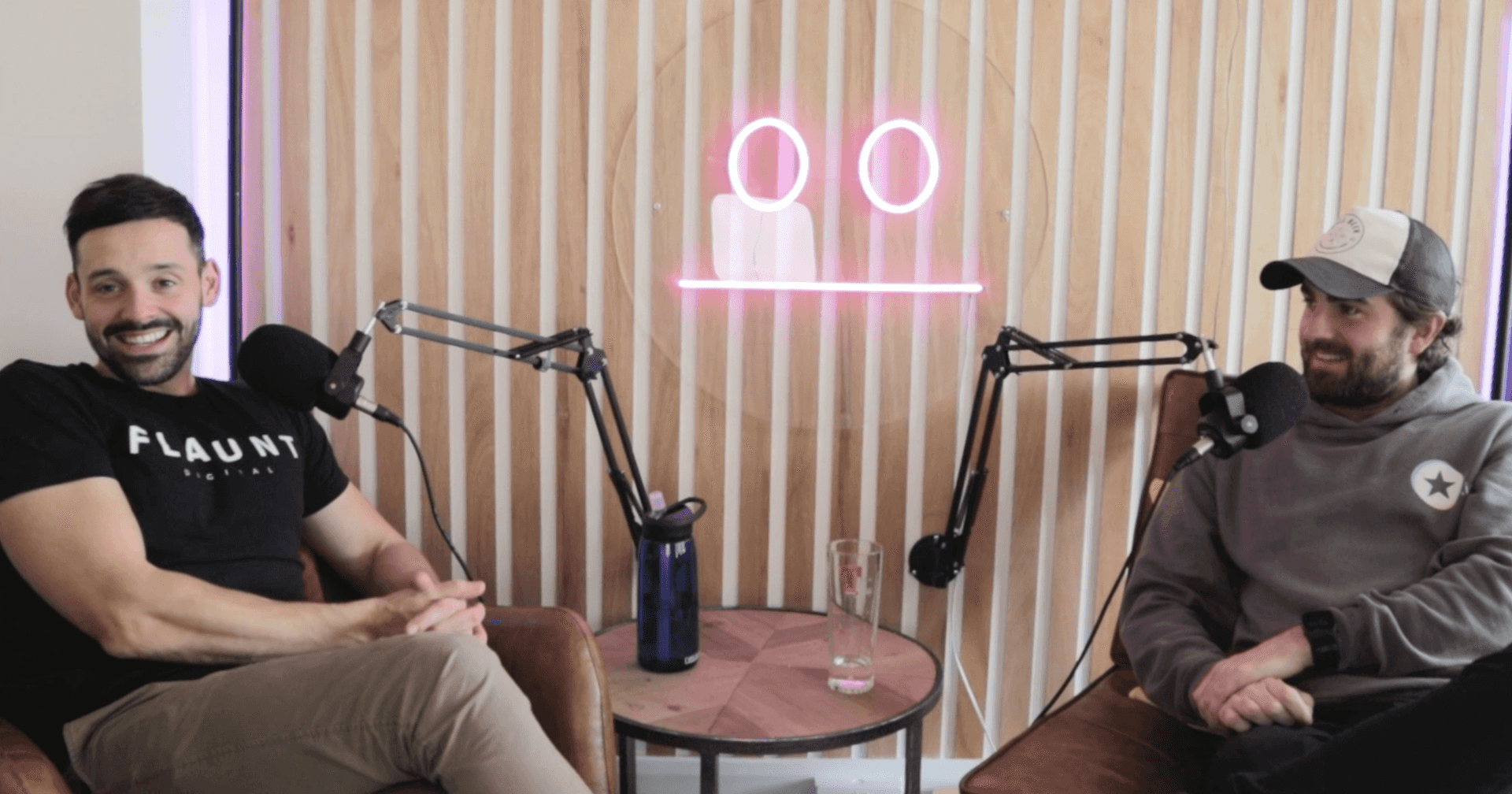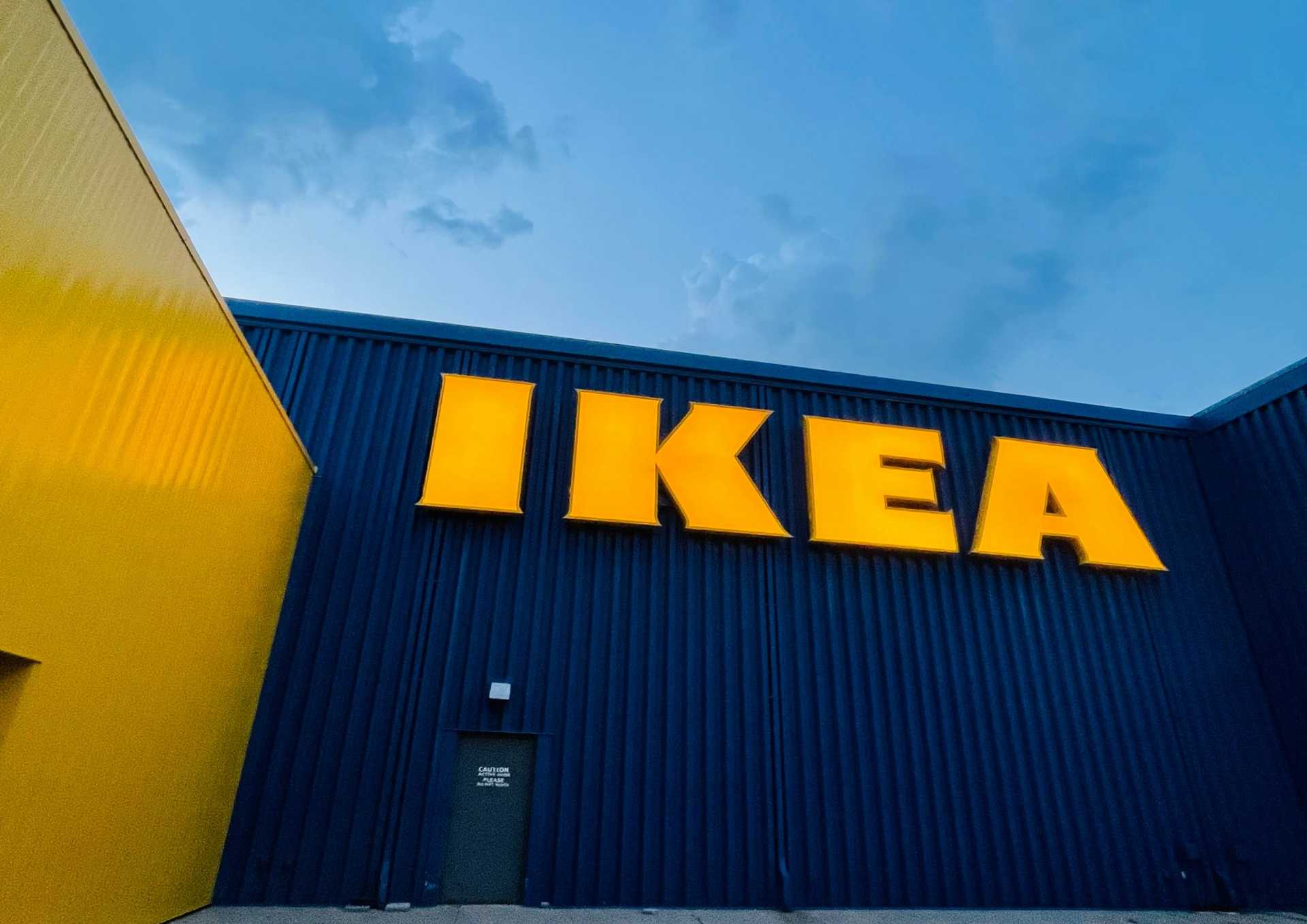resting pitch face episode 22: pitching experience
It’s a vicious pitching circle: brands who want you to demonstrate case studies in their sector and identical to their project, but then want exclusivity that you aren’t working with their competitors.
In this week’s episode of Resting Pitch Face, we are talking about pitching and why brands need like-for-like examples. Lee and Dan give their opinions on the subject and discuss why digital knowledge and experience should be enough to qualify an agency’s capabilities.
Listen on Spotify or Apple Podcasts or subscribe to our YouTube channel for weekly episodes. See below for a full transcription of episode 22.
transcript
Lee: Pitch process is a theme and I think one thing that comes up inevitably is who you’ve worked with that is either a competitor or sits within the space that the prospect that you’re talking to sits within.
Dan: And usually incredibly niche as well. So basically, have you worked with our one other competitor?
Lee: Yeah, it does happen often and it always seems to be a prerequisite of engaging with somebody and people want to see case studies of like for likes. But yet on the flip side of that, when you speak with the client, client wants exclusivity. So it’s like a bit of…
Dan: Work that one out..
Lee: Butting heads. And I think the relevancy of that in digital is pretty thin
Dan: Minimal. Is it lazy? Is it born out of laziness when they think right? What do they want? Creds, wise case studies wise? Is it just the default where they go to? Who else have you worked with in our industry?
Lee: I almost think they, well I don’t almost think, I think the only valid reason why brands ask that question specifically who have you worked with that’s either like for like competitor or that sits within our sector is because if the answer to that question is yes and you are able to produce results and that you’ve driven for someone similar, it becomes easier for them to understand the value because it’s a like-for-like comparison. that if you go for example, if you work with Nike on selling trainers and then Adidas approached you and you show them case studies where you’ve driven sales for Nike on trainers, they can completely without having to do any kind of digging or validation of the strategy that you’ve delivered, see the value like for like and that’s the only thing I cling onto.
Dan: Yeah.
Lee: When that question comes across the table.
Dan: I’m still thinking, is it a laziness thing?
Lee: It could be
Dan: Is it a comfort blanket to not put themselves potentially in that position, where you from the agency side of the table say no, but we’ve done this. And I think these parts are very much suited to the challenge that you’ve brought to us, for example.
Lee: I think there’s a there’s a shift in agencies more recently post-COVID, so five years ago if you had an agency and you niched into a sector, yeah, you win. Then all the travel agencies and hospitality agencies in COVID got absolutely obliterated, which is shit, but it’s just part of what happened through the pandemic. We as an agency had a purposefully diversified list of clients in as many different sectors as We could and I think a lot more agencies are now taking that approach. And I think you can communicate quite easily and clearly the sort of baseline strategy and the skills are transferable.
Dan: I think you’re right. And agencies where one of them have got better with the handling of let’s say that question by exactly right. Flip it around saying, look, this is case study number one. Case study number two, this is why it is actually relevant to your situation given the information we’ve got to hand we still hear that question though every day. It is the go-to. I don’t know genuinely if I can’t say 100% let’s say 90 to 95% of all of these times that this these questions or this question comes up, it’s pretty much 95, if not 100% of the time.
That will be the first one, the first prerequisite question.
Lee: Do you think then that it’s because there’s a lack of understanding about the services that the agency is offering?
Dan: Yeah, I think I think that that could be a contributing factor. And I also think it’s been how case studies have been written previously. I think case studies were chopped up, let’s say, into service and or industry, and that’s it. And I think what’s really what we’ve been on a big push for here and I think we’re doing it well, is slicing a case study up in so many different ways into the challenge: lead gen. B2B Ecom, do you know what I mean? All sorts of different ways of slicing and dicing a case that I think inherently are years gone by agencies default of tagging that up or filtering it on their website was purely sector-driven, and or purely service. And that’s it. So I think that’s the information that fair play has only existed really on mass for several years.
I think it’s too far to think it’s service knowledge being thin, let’s say, or thinner than maybe we’d want it to be to then flip that question around and it comes in a different guise and or what I’ve just said, I think agencies have had a part to play in that. What case studies and how case have been represented on websites and talked about really. we’ve had a meeting this morning with our sales and marketing team and we’ve literally been talking about how we can take existing and new case studies into that almost like a shopping list in the in the way that they split up so that you can present that actually as being more valuable to someone who still might come with that same question can you give us your travel industry experience we can go well what is it that you’re looking to do? What is it? What is the pain point? Is it B2B, B2C, or a blend of those? So you’re having the conversation that way. I think as much as we can turn our case studies around the other way that will hopefully start helping brands because they’ll be self-serving themselves with that information.
We all know that they go onto your websites and look for case studies. So I think I think we’ve got agencies I should have said I’ve got a part to play in that as well.
Lee: Picking up on something that you said there about going back to the client with what are you looking for, what you’re trying to almost quantify from asking me for that data. That question alone then I think just puts to bed the like for like or the sector because a client that is looking for an outcome which everybody is should be able to ask the question for an example of a success metric in the service that they’re inquiring about which everybody or every agency should be able to put back across the table and then that is a much more realistic view.
Like if you’re saying to me, you’re great at SEO and you show me some competitive or commercially competitive spaces that you’ve been successful in, regardless of the keywords, I know that you’re going to be able to interpret my business and go and apply that in my sector. that’s not a Hard equation.
Dan: Absolutely not. And I think here I do think it works as most things do work both ways. I’m just trying to see it from what are the contributing factors to have got us to this point and recognizing and acknowledging that this question is being asked still to this day, on this day by brands coming to us and wanting to know what our chops are in their sector.
Lee: I think for me as well, the thing that that does is by that being a default question and the default approach from a lot of brands, like you said, day in, day out it just is that gets in the way of selecting the right partner for me. Like you miss the opportunity to have a conversation about how you operate, how your clients perceive you, and what you know. Like there are things that are unique about an agency that will provide value day to day that you are just going to overlook at that stage and I Of Opening that door.
Dan: It completely does. It’s like a closed question and a yes or no. And then where do you go? That’s the first filter for them. Um, interestingly, when you were saying that, firstly, I agree and I’m, I work with you, I was trying to put myself in a brand’s shoes. I’m the brand listening to you saying that. And I just wonder if you got the opportunity to be able to put that point across to brands who I’m not saying you get into a heated discussion with them after they’ve asked that sort of question, but I wonder if they said to us, we’ve got to filter out somewhere.
We’ve got to there are too many agencies, there are too many agencies. And we’ve got to start somewhere with something quite big as a question. So, you know, wipe out like I say a closed question. If everyone’s going to say yes to this, you know, you’re through to the next round of pre-qualification, for example. But all the ones who said, no, you’re out of there for an easier life because there are too many agencies, too much choice for them.
So they can be kind of cutthroat and brutal from their question line of questioning to get rid of a lot, help their own gain in making their process in their mind easier. But you’re right, it does we, for example, would lose any opportunity to get our culture model across results and client testimonials. All that stuff’s lost because this is such a big sweeping question right at the start.
Lee: I think the poor thing about that is looking at that on a wider scale, that’s a perception-based process and I think the perception is that if you approach an agency regardless of the brief, the results, the outcomes that you’re looking for, the requirements that you might have, they will just say, yes because they’re chasing the work, they want wherever they can get their hands on. Whereas a good agency will look at the requirement and the client and have various different ways of validating whether they want to invest the time in working with that client. And if they don’t, they will say no and they will either say no and offer you an alternative solution, or they will just say, we don’t think that we’re the right fit and that needs to happen more to break the perception that the amount of agencies that are out there that will just say, yes. It’s still a thing.
Dan: Yeah, it’s not it’s not perception either as well. It’s panel truth, isn’t it?
Lee: But I do think it’s it it’s a bit of a historic way of doing things.
Dan: Yeah. I mean, we’ve got first-hand experience of stories of hearing it, of people grabbing whatever they can by manipulating an answer.
Lee: It’s like us getting a radio briefing going. Yeah.
Dan: Yeah.
Lee: Which is I don’t get me wrong. We’d figure it out, but we wouldn’t do it.
Dan: No. Yeah, yeah, yeah. Absolutely right. It’s just one of these things where we’ve we’ve discussed so many different times on this the need to rethink and how so much potential to be rethought and redefined. But it’s a big problem that to call that a problem is a big thing that exists, as I said to it, every single day. Who’ve you worked within our space? Everyone listening to this will have come across that. That’s not me.
Lee: It’s it’s almost like there needs to be a global movement like B Corp for specifically that thing. Yeah. And I know there’s like intermediaries, like a bread maker that exist to try and help brands validate the good from the bad agency. But yeah, I think there maybe is an opportunity somewhere in there, but probably needs a bit more thought of where you can become something that then removes the need for that first generic validation.
Dan: Yeah, I think we do a good job. As I say, we’re really taking stock of how we slice and dice our case studies. I think it’s easier when you’ve got the door open and the conversation is been out and some of those conversations will be dead ends because that very first question is the most important question to that brand at that point.
Because as I say, might not always be the case, but I am I find it hard to convince myself otherwise that it’s not borne out of just how many agencies are out there. And the need to fairly quickly get down to a relatively short list, a long list.
Lee: I think we could really think about being a little bit more open about communicating these things on a public like in this kind of setting. I mean, and I bet we could ask quite a lot of people that we know both client-side and agency.
Lee: Side these.
Lee: Questions. Yeah. And I think that would probably be a really good bank of content.
Dan: Yeah. And the next time someone asks that.
Lee: But it surfaces.
It doesn’t, and it makes it a public conversation, which I think is another thing that needs to happen.
Dan: Yeah, I think the forums that are doing that and trying that, but it just needs oomph behind the scale.
Lee: Yeah.
Dan: Next time I get asked who do you work with in our sector, I’ll just get done.
Lee: I’ll start and here’s why. Yeah.
Dan: Yeah. I think it can get if you Yeah. If you get the right relationship but it depends where you are with that relationship at the point at which a question like that is being asked for you. Well, I don’t mean this like you’re not well within your rights. You are within your rights to say how you know however you want as long as you’re respectful.
But I think depending on who you’re speaking to, at what point it’s something that we find that we’re not pushing back on but digging into? It’s quite nice to counter a question with a question and then it starts naturally flowing into just an open forum conversation. You and I know the more informal but collaborative a conversation can be.
Dan: That’s where it really seems to we forge stronger relationships with then hopefully clients at that point. So yeah, maybe I’ll do that though, don’t ask that, question denied.
Lee: Challenge directly look deeply.
Listen on Spotify or Apple Podcasts or subscribe to our YouTube channel for weekly episodes.





